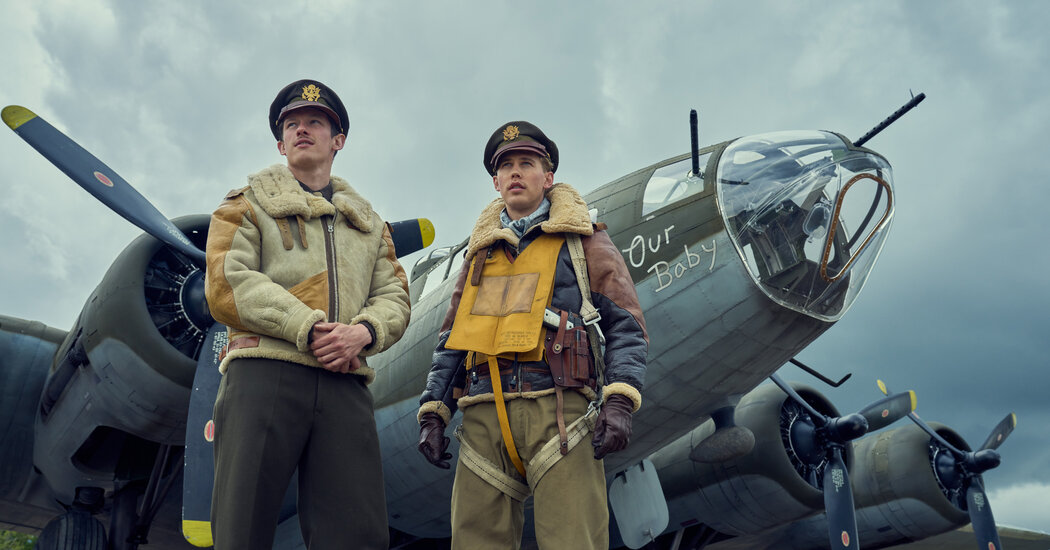The primary narrative, centered on the pilots Buck Cleven (Austin Butler) and Bucky Egan (Callum Turner), also takes a tortuous path. It’s easy to see why you would want to build the story around the best friends Cleven and Egan, with their harmonious nicknames and sterling records of service. But the facts dictate that partway through the series, both ditch their planes and are taken prisoner, radically changing the feel and look of the show in a way that attenuates the drama and diminishes the emotional investment the viewer has been building.
Those events could have been shaped artfully, but “Masters” doesn’t manage it. Cleven’s initial disappearance occurs off screen and without explanation, setting up a surprise prison-camp reunion with Egan several episodes later; it may match real events, but onscreen it feels manipulative and obvious. Neither that meeting nor their second reunion back at the air base has the emotional force it should have; the moments feel like boxes being checked.
Contributing to the general sense of disorganization, the show doesn’t do a good job of differentiating and particularizing the members of its large cast, as airmen die by the hundreds and replacements are brought in. Especially in the aerial scenes, behind oxygen masks and goggles, the crew members are hard to sort out, adding a layer of confusion that makes it harder to be invested in their fates.
The unfortunate thing about “Masters” is that it isn’t doing what it should for some of the actors in the cast, the way “Band of Brothers” showcased Damian Lewis and Ron Livingston. Butler and especially Turner are fine performers, and they’re wonderful to watch in the early episodes, as the 100th arrives in England, prepares for battle and embarks on its disastrous early missions.
Butler’s reserved charisma and Turner’s witty, sparkling-yet-barbed energy play off each other in an absorbing and moving way, and you want to see where the toll of the nightmarish bombing runs takes them. (Nate Mann is also excellent in the more one-dimensional role of the dedicated replacement pilot Robert Rosenthal, who picks up the narrative slack after Cleven and Egan go down.)
Once they’re in the German camps, though, playing out familiar contraband-radio and clandestine-plotting scenarios, the life goes out of their performances, and out of the series as a whole. Butler and Turner deserved better, but Egan and Cleven, who died in 1961 and 2006, respectively, get their due in the scene many viewers probably care about most: the biographical denouement showing their real faces and detailing their postwar lives. Even with Hanks and Spielberg involved, when you put history right next to fiction, history tends to win.


